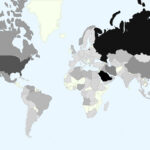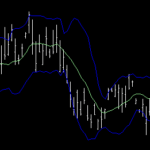Reuters, citing sources, reported that eight member nations of the OPEC+ coalition are expected to meet this Saturday in order to discuss a possible acceleration of oil output increases during the month of July.
The meeting will decide whether the key producers opt for an increase in output that is more significant than originally anticipated, or stick to the smaller rise previously agreed upon.
This decision is based on several factors including the current oil market, global demand and prices.
In the weeks to come, Saturday’s outcome will have an important impact on oil prices and supply in general.
The original meeting date of Monday was rescheduled to a later time. It was unclear why this meeting had been moved.
Oil production increases from May
Saudi Arabia, amid concerns about global oil demand, economic stability and the future of oil, advocated in April 2025 for an increase in crude production by eight member countries participating in a major oil producing alliance. This was to be implemented for May.
The proposal to increase output more than anticipated, was implemented.
As a result, the increase in global oil supplies pushed crude oil prices down below $60 per barrel.
The price of crude oil was the lowest in four years. This marked a significant shift on the global energy markets and could have a major impact on the outlook for nations and industries that are dependent upon oil.
Saudi Arabia, Russia and the eight OPEC+ members are responsible for voluntary cuts in production of 2.2 millions barrels per day. This has been going on since 2024.
The voluntary production ended in April as eight of the members increased their output to 135,000 barrels a day.
Last month, however, the group announced that they would increase their output in May by another 411,000 barrels a day. Market participants expected the cartel’s output to rise by similar amounts to what it did in April.
Kazakhstan conundrum
Riyadh is reportedly unhappy with Kazakhstan and Iraq over exceeding their OPEC+ production quotas.
The oil price dropped below $60 per barrel in the past week. This was partly because a Reuters article indicated that Saudi officials had communicated their willingness to continue to lower prices to analysts and allies.
Reports earlier had indicated that the group could also increase oil production in June.
The Organization of the Petroleum Exporting Countries (OPEC+), which includes its allies and Russia in particular, has implemented production reductions of more than 5 million barrels a day.
The group has scheduled a full OPEC Ministerial Meeting for the 28th of May.
David Morrison is a senior analyst for Trade Nation. He said that the Saudi comments are unlikely to stop the downward trend in the oil price.
It is important to remember that the market eventually will be unable to find buyers. There will then be a rally regardless of the fundamentals.
Brent crude oil was trading at $61.37 per barrel on the Intercontinental Exchange, down by 1.2% since the last close.
The post OPEC+ to hold an urgent meeting on Saturday in order to finalize the June output plan can be updated as new information is revealed
This site is for entertainment only. Click here to read more






